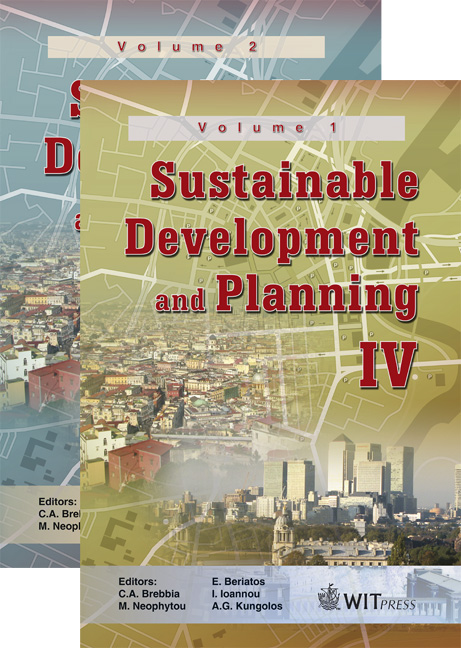City Planning And Energy Efficiency: Towards An Integrated Urban Design And Planning Process
Price
Free (open access)
Transaction
Volume
120
Pages
9
Page Range
43 - 51
Published
2009
Size
225 kb
Paper DOI
10.2495/SDP090051
Copyright
WIT Press
Author(s)
E. Barreiro, J. Belausteguigoitia, E. Perea, R. Rodríguez, A. Romero & E. Turienzo
Abstract
Urban environments are great consumers of energy. In Spain, the housingservices sector is responsible for almost 30% of the total energy consumption. There are many initiatives towards the reduction of energy consumption in buildings. However, many of the alternatives are diminished due to a lack of a holistic approach in the planning, design, and building of new communities. This paper reports a new methodology that integrates concepts of energy efficiency in the overall planning and design process. A community in Toledo, Spain, serves as a case study to extract conclusions later applicable to other areas. The methodology evaluates energy efficiency solutions at different scales and stages within the planning and building process of both neighbourhood and buildings. It then revises the planning and building protocols for the optimization of the community’s energy efficiency, contemplating their practical applicability. With this, the proposed integrated methodology is improved and adapted to a widereaching design of energy efficient urban communities. Keywords: city planning, energy efficiency, energy modelling, eco communities, resources management, environmental economics. 1 Introduction Urban environments are great consumers of energy. In Spain, housing and services are responsible for 27% of the country’s total energy consumption (Eurostat [1]). In Europe, this figure mounts to 41%, highlighting the relevance
Keywords
city planning, energy efficiency, energy modelling, eco communities, resources management, environmental economics.





